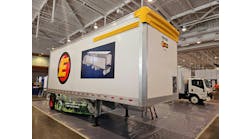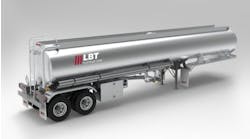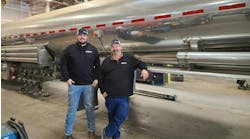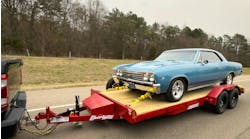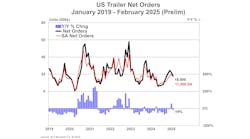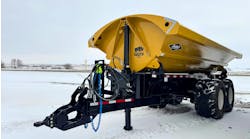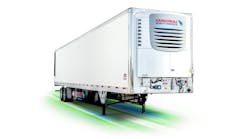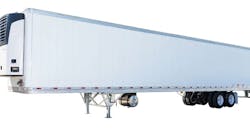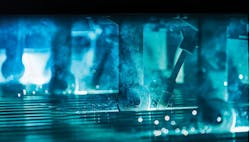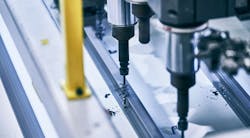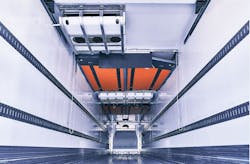Trailer manufacturer Hyundai Translead recently enhanced its HT ThermoTech refrigerated trailers with new design features, manufacturing processes and automaton assets it says improve the trailer’s efficiency and reliability.
“The new and improved HT ThermoTech trailers capitalize on the world-class automotive and manufacturing expertise of the Hyundai Motor Group, and produce one of the most durable, thermally efficient and lightest trailers on the road,” the company said.
Hyundai said insulation efficiency is controlled by legislation originally passed to address ozone depletion, and the chemical construction of foam insulation could be further influenced by measures to address global warming.
Blowing agents, the gas inside the cell structure of the rigid insulation, are emerging in the market to address environmental concerns, but thermal efficiency still is influenced by cost and manufacturing, so Hyundai said it focused on working in regulatory compliance in an effort to maintain temperature efficiency.
Structural components that give refrigerated products their load carrying capacity can work against thermal efficiency because they transfer heat through the insulation, so Hyundai said it sought to minimize the effects of heat transmission with better structural designs, including more insulating material in some panels.
“Efficiency loss will occur when moisture saturates the insulation, so designs that prevent moisture intrusion will maintain efficiency longer,” the company said. “Joints and closures were eliminated or improved to be less dependent on caulking and sealants. Primers and bonding techniques are incorporated in the manufacturing process to assure the integrity of laminations between sheet materials.
“Preventing bonding separation between the outer skins and the insulation will discourage water gain due to condensation.”
Hyundai Translead said it also took steps to address equipment life by redesigning components most susceptible to damage. The deck now uses taller, stiffer structures to support the floor surface. Heavy-duty aluminum floor extrusions fit together with a mechanical lock to take stress off the welded joints, and the new fully automated welding fixture lays down a weld-bead of greater mass for additional strength. All wood structures within the deck were removed and replaced with sustainable recycled materials that will not absorb moisture and increase fastener retention.
“The combination of material choice and design ingenuity allowed 13% greater floor ratings with no weight addition,” the company claimed.
Structural floor sills were redesigned with rigid PVC, a more durable and recycled material. In addition to material changes, the floors also feature a new “mechanical lock” design, so floor pieces are secured together even prior to welding.
“The improvement is to put a mechanical lock in the design, so that when you connect the two pieces together we actually have a big advantage in the mechanical fit of these two pieces together even before we weld it,” said Adam Hill, vice president and chief engineer.
Welding is now fully automated at Hyundai Translead’s plant. Uniform, computerized welding produces a more consistent and durable weld, the company said. Every vertical seam in the flooring of each trailer is automatically welded, increasing the mass of the weld by roughly three times.
HT ThermoTech reefers also feature corrosion protection on all surfaces, the company said, through the use of hot-dipped galvanized steel assemblies, including all steel deck structures, support legs and braces, slider components and rear impact guards, which are fully submersed for zinc galvanization after assembly.
Also, the integral stainless steel front impact assembly comes with a coupler assembly fully submersed with paraffin-based undercoating as standard, but customers can have these components fully galvanized at no additional cost.
While increasing thermal efficiency and service life of the HT ThermoTech, all insulated panels were optimized to reduce weight, Hyundai said. Sidewalls, roof, deck and front assemblies are lighter by converting to lighter weight raw materials or applying design techniques that require fewer components or leaner assemblies. Today’s HT ThermoTech trailer is 600 pounds lighter for base line-haul models.
“We have invested significant capital expenditures and made improvements to refrigerated trailers to be competitive, and we will continue to invest and be innovative,” said Bonjae Lee, CEO of Hyundai Translead.
